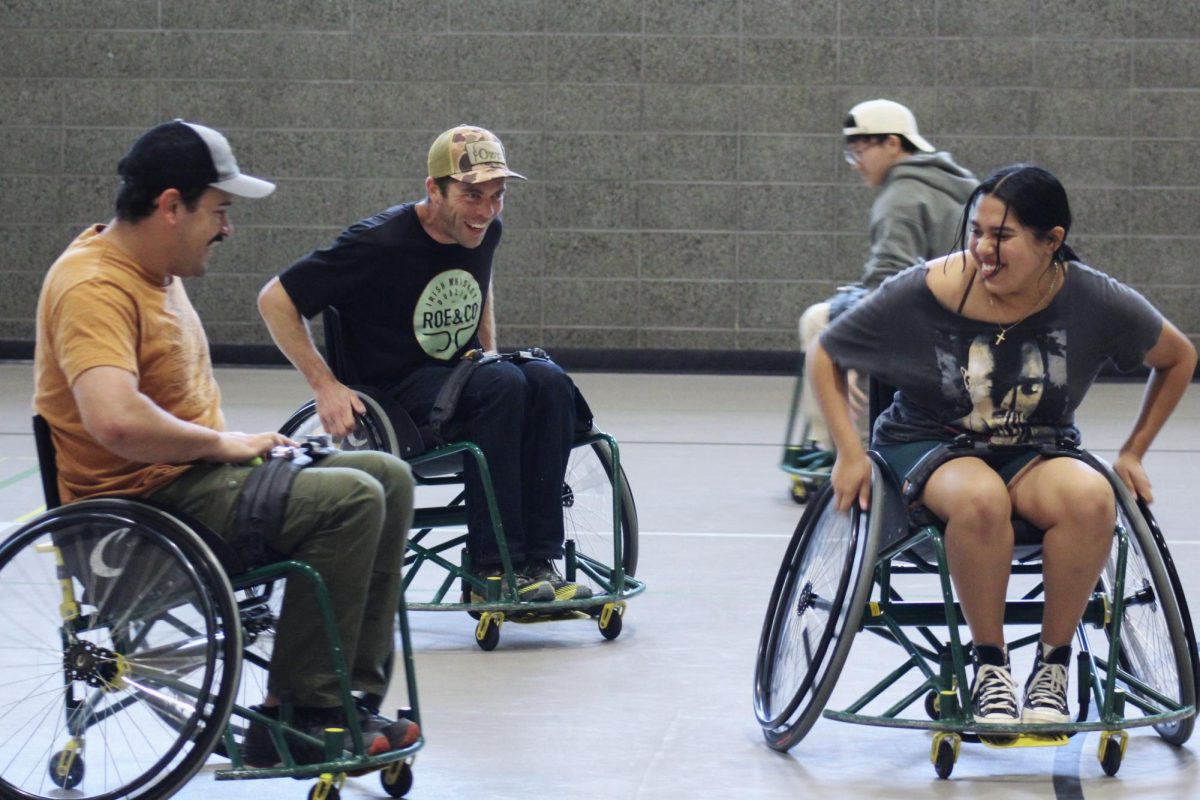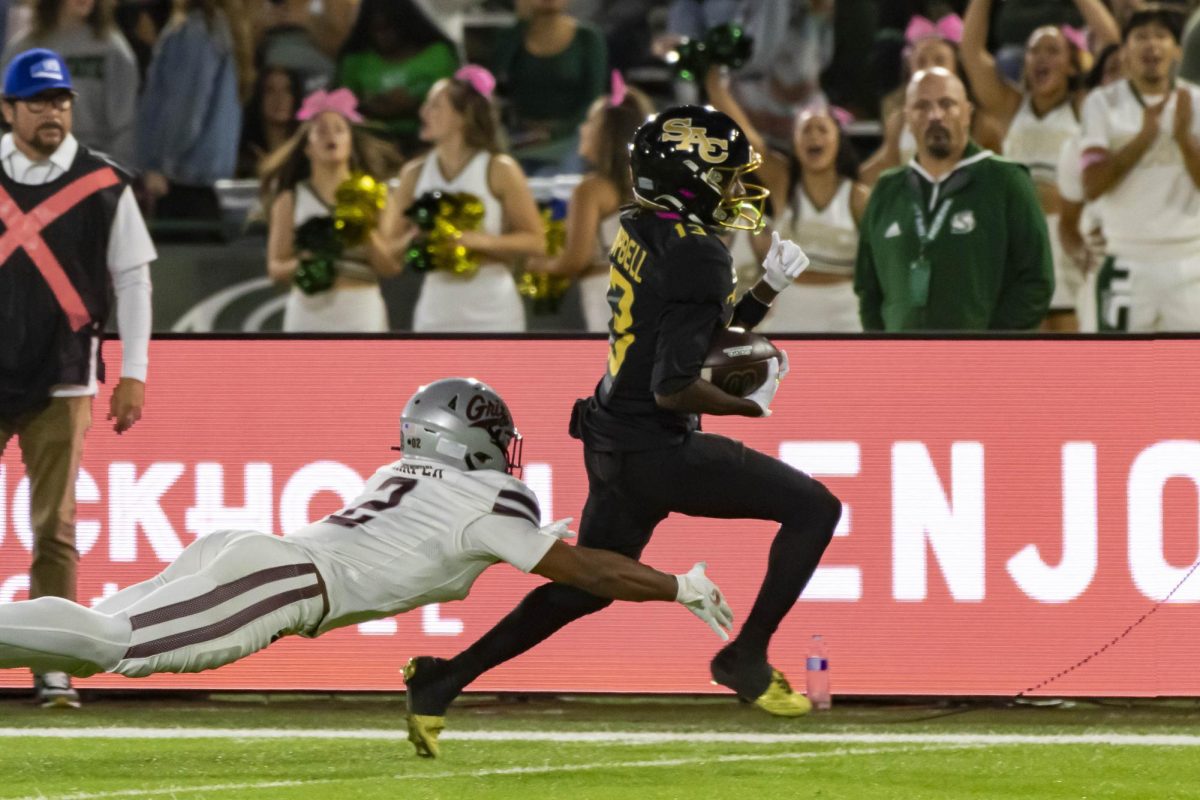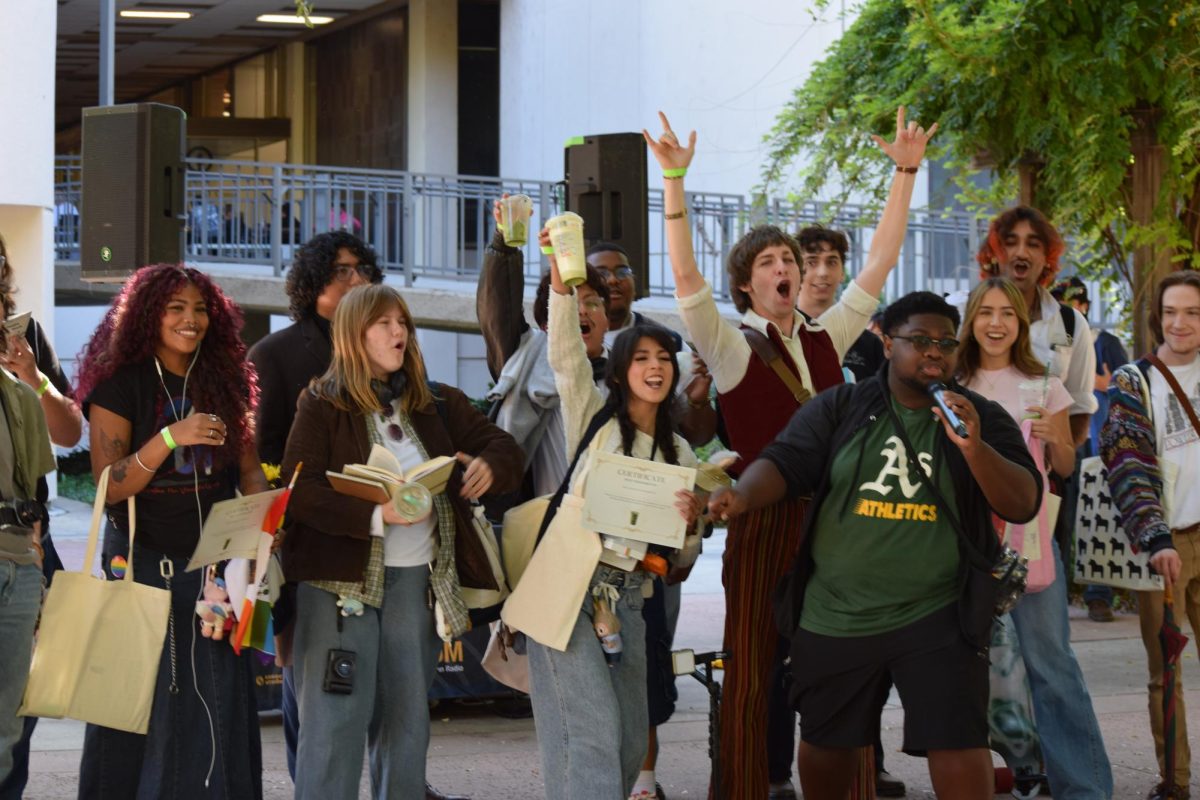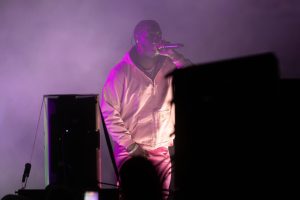Sac State receives grant to renovate old science facility
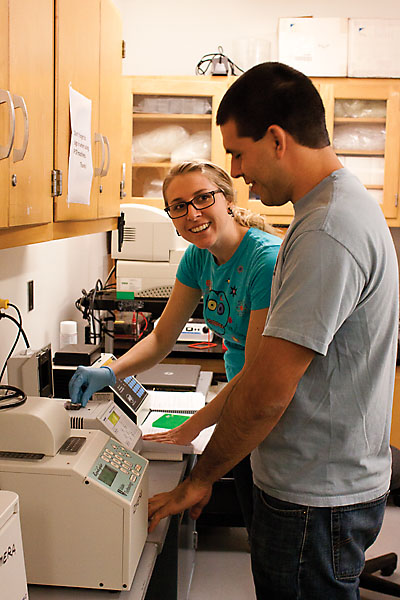
Science Grant:Senior biological clinical lab science major Kelly Davis and senior molecular biology major Sam Paris work at the research facility located in Sequioa Hall’s basement. :Brittany Bradley – State Hornet
November 9, 2010
Sacramento State’s biology department wants to “be put on the map” in terms of micro cell biology and hopes that the recent science grants provided by the National Science Foundation and Rep. Doris Matsui, D-Sacramento, will help them achieve this goal.
A $755,000 grant from the National Science Foundation will be combined with Matsui’s $350,000 grant to renovate, reconstruct and replace out-of-date equipment for the university’s Center for Interdisciplinary Molecular Biology Education Research and Advancement, located in the basement of Sequoia Hall.
Jill Trainer, dean of the College of Natural Sciences and Mathematics, said the renovations allow for an update in the current facility and will make the laboratory more usable and up-to-date.
“The renovated space will facilitate new research discoveries by faculty and students and give student advanced (skills) and training,” she said.
The National Science Foundation’s grant will be used to modernize the research facility and the $350,000 congressional grant will be used to purchase new equipment.
According to the National Science Foundation’s grant awards’ abstract for Sac State, specific renovations will include removing an “autoclave and cage washer update the facilities’ ceiling, lighting, flooring, electrical service and network connectivity to appropriate standards, and lastly updating benches, cabinetry and plumbing.”
The renovations began in October and completion is expected in August 2011.
The research facility had been previously used as an animal care facility and is now a shared research space used by faculty and students in the chemistry and biology departments.
The new equipment will include “inverted” and other types of microscopes, a fluorescent flow cytometer (cell counter), and a poster printer workstation, among others. The new equipment will give students hands-on experience in cell analysis and micro cell biology.
“Microscopy and other visual media allows us to literally show students that when (we) say that “this molecule moves from here to here’ it means a million times more for them to see it instead of hear it from (us) in a lecture or in a textbook,” said assistant biology professor Thomas Landerholm.
Assistant biology professor Thomas Peavy said the new “state-of-the-art” equipment would allow students to become involved with the material instead of focusing on the data.
“These pieces of equipment are high-end equipment that are user friendly and gives (faculty) the opportunity to begin to have students to be working one-on-one with the equipment and seeing for themselves what is going on instead of standing back and seeing just data,” he said.
The Guava easyCT Fluorescence Flow Cytometer is one of the newest additions to the cell analysis laboratory. It cost an estimated $105,000.
This equipment allows students to develop cell culture skills, as well as develop a stronger understanding of the cell cycle, characterize bacterial populations and quantify blood cell populations.
Another new microscope, called the Olympus Fluoview FV10i Confocal Microscope, uses fluorescent light to view up to three or four molecules and digitally capture their images.
The cost of this equipment is “twice the (biology) department’s operating expense for this school year,” Landerholm said.
It also has digital imaging capabilities as well as 3-D “rendering” and animation. It is the first “self-contained confocal laser scanning system” that can be used without a darkroom.
Biology professors are in agreement that a renovation of the facility has been long overdue.
If successful, these renovations will create a “modern” cell analysis and bacterial cell culture laboratory, large equipment room and complete modernization of the molecular biology laboratory.
“Technological teaching are buzzwords that are frequently used in the education realm, but in biology that is our actual goal,” Landerholm said. “Technology is ever evolving and we need to stay current so that we may prepare students and give them that competitive edge when they look for jobs (after) graduation.”
Laila Barakat can be reached at [email protected].


